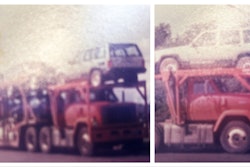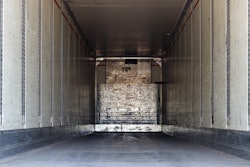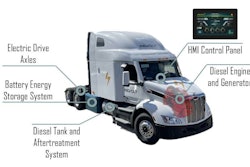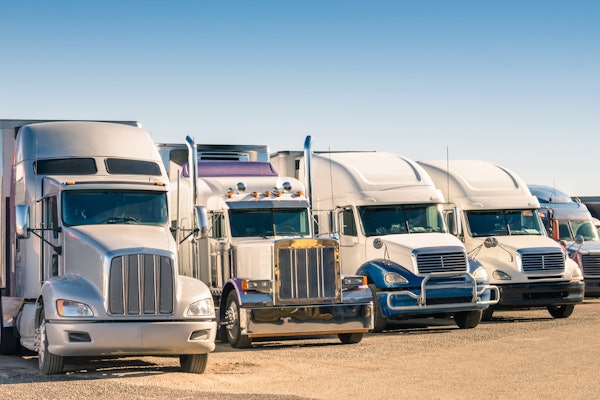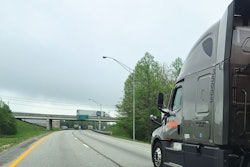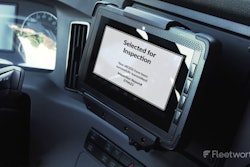Lease-purchasing a truck in a carrier's lease program or through another third-party company is fundamentally an uncommon avenue toward truck ownership, according to every Truck Purchase & Lease Survey Overdrive has conducted throughout the years. In the most recent one, furthermore, the lease-purchase was getting more uncommon, with results published in early 2022 showing just 5% of owner-operators having acquired their most-recent piece of equipment that way.
Carriers' lease-purchase programs in particular get a bad rap for horror stories that abound. Such stories aren't hard to find -- as people, of course, we love to talk about our difficulties. The old if it bleeds, it leads journalism maxim illustrates that people love to read stories about those difficulties, too. Perhaps it's no surprise thus that after Congress directed the Federal Motor Carrier Safety Administration to convene the Truck Leasing Task Force specifically to examine truck-leasing practices, it would ultimately pinpoint its focus on those carrier lease-purchase programs and recommend they be abolished entirely.
"Lease-purchase programs cause widespread harm without offering meaningful scale opportunities for truck and small business ownership," the task force's primary reports states, specifically addressing programs administered and controlled by motor carriers themselves, not third-party leasing companies.

Yet what the task force didn't seem to fully appreciate is that for a subset of truckers, such programs have in fact been meaningful, resulting in truck ownership or, on the other side of the equation, underpinning a business model.
In the wake of the task force's final recommendation, Overdrive asked a simple question to readers: Have you ever entered into a lease-purchase agreement with a motor carrier? Excluding the 4 in every 10 respondents who answered No, results shown below focus in closely on ownership outcomes of readers' carrier lease-purchase experiences over the course of their careers.
The task force in its final report noted the "evidence presented" to it led to its conclusion that "very few drivers make it to the end of the lease-purchase agreement and take possession of a truck."
If the results shown above come close to reflecting a broader reality around trucking, that's simply wrong. As noted, the no-ownership outcome rate generally is higher -- 66% versus 49%, including on both sides the 15% of respondents who reported each separate outcome at one time or another. Yet nearly half of respondents who'd ever participated in a lease-purchase ending up outright owning a leased truck is well more than a "very few."
Todd Amen, president of ATBS, content partner with Overdrive in the Partners in Business manual, felt the task force only told the story of "the downside" of some carriers' programs, he said. "They didn't talk about the upside" that exists clearly for those who've experienced varying degrees of success.
Keep in mind, too, that in most such carrier programs the second half of the lease-purchase term isn't always even part of the equation in the calculus of the independent contractor. Amen favors talking about lease-purchase with contractor clients with a different terminology. He encourages people to think of a lease-purchase as what it most often is, a truck rental agreement with the option to purchase the truck at the end of it. The task force puts that notion front and center in its report, on page 3 noting some operators come into lease-purchases thinking they are truly "accruing equity in the truck."
"I got a huge raise immediately." --Steven Berube, describing the impact of a more affordable conventional financing arrangement for his second truck in the late 1980s, compared to the first one, which he acquired through a carrier lease-purchase.
It's indeed important to understand that that's not the case in any rental agreement like a truck lease. Most carrier programs are structured like TRAC (Terminal Rental Adjustment Clause) leases, where the "purchase is optional" at the end, Amen noted. A smart lessee in a time of very high market prices for equipment might exercise that option if the terms of the lease, for instance, say "I can buy it for $40,000 and the market" dictates it's worth $90,000, not exactly unheard-of during the COVID-era run-up in used-truck pricing. In a different market where dynamics are flipped in the other direction, a similarly smart lessee might just "turn the truck in" and ink another lease for a different one.
[Related: Making the truck-acquisition decision: To lease or purchase?]
Amen won't say "all lease-purchase programs are great and perfect programs," he said. "Celadon is out of business for a reason."
The C.R. England fleet no longer works with owner-operators, he added, for a reason. "Problems get solved in a free-market economy through natural methods." Carriers' lease programs on the whole, he feels, are "just not the demons many make them out to be."
Included in the majority of question respondents shown in the chart above, the 51% who never followed a lease through to actual ownership of the truck, could also be a subset of truckers for whom essentially straight truck rental through carriers' lease programs is a business model, the purchase option just never exercised. Reference the example of Glen Horack, longtime in Prime's program and a past Truckload Carriers Association Owner-Operator of the Year. When that award came down in 2022, Horack spelled out his equipment strategy, going back decades, as a three-year lease he'd take to full term before swapping for new equipment without exercising any end-of-lease purchase provision whatsoever.
When his wife, Karla, went on the road with him as co-driver, he continued the three-year straight lease strategy. But given well-many-more miles run, "we've been trading every two years," he said in 2022. Through it all, the strategy was to offload equipment responsibility "before the warranty runs out."
Excepting the big hit the Great Recession put on his business, it'd been a good, profitable career for Horack just leasing, he said. He was at the time looking at slowing down substantially, with an outright purchase. "My last truck I'm going to write a check for, and then we'll slow down, and [Karla will] probably go home, and I'll just work when I want to. ... I have people ask me all the time, 'Why do you lease the truck? Why do you lease it?' Because we put so many miles on it, by the time I get it paid for, it's wore out. Plus with the lease, I drive a new truck all the time," avoiding big maintenance outlays given the newness of the unit and warranty coverage for all but typical wear items.
Experiences in lease programs like Horack's don't fill the headlines on the bleeding edge, as it were, yet they're certainly not unheard-of.
Read next: Tale of two lease-purchases: A path to truck ownership, and a swift exit





